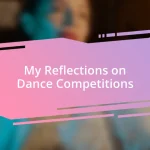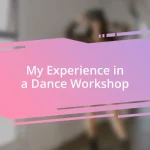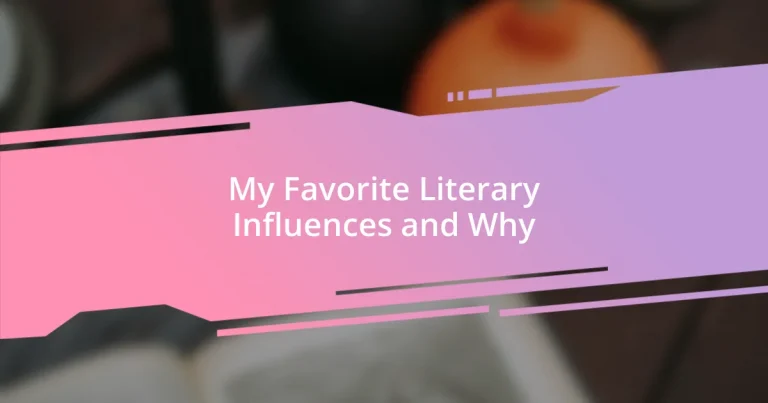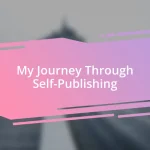Key takeaways:
- Literary influences shape personal perspectives and emotional responses through profound storytelling, as exemplified by authors like Shakespeare and Morrison.
- Thematic exploration in literature—such as love, resilience, and identity—encourages introspection and fosters connections to individual experiences.
- Identifying personal literary influences involves reflecting on impactful books, analyzing favorite passages, and recognizing recurring writing habits influenced by admired authors.
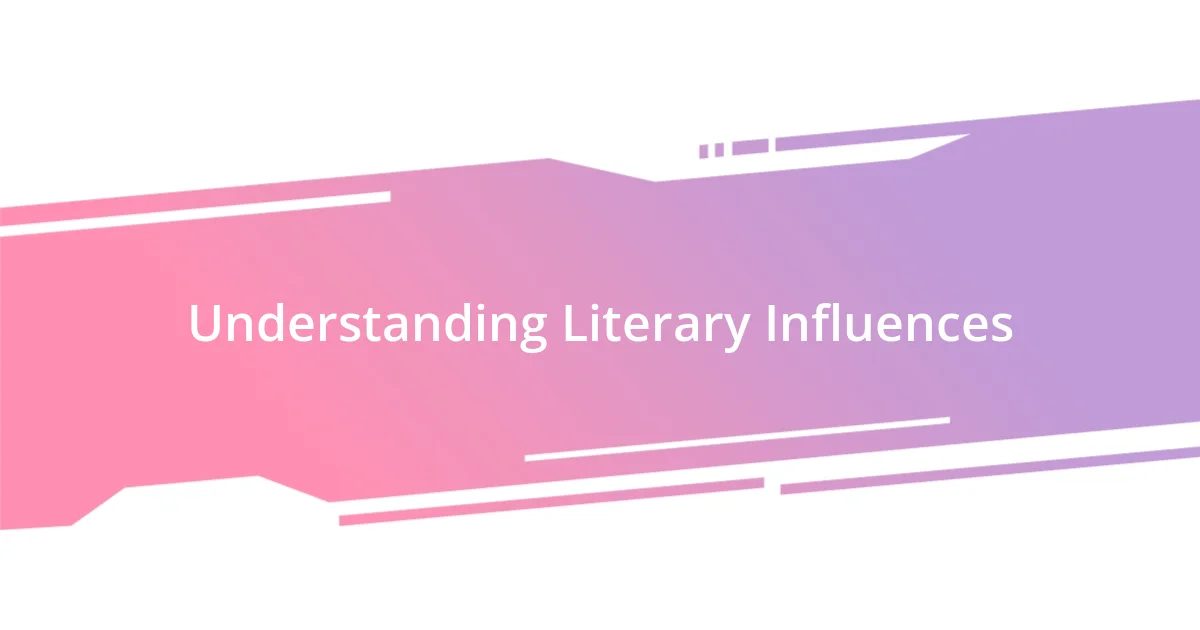
Understanding Literary Influences
Literary influences shape not only literature but also the very lens through which we view the world. I can recall the first time I encountered the poetic depth of Shakespeare; his sonnets opened a window to emotions I didn’t even realize I had. Isn’t it fascinating how a single author can shift our perspective so profoundly?
As I delved deeper into my favorite genres, I began to appreciate the distinct voices that authors bring to their work. Reading Toni Morrison made me confront the complexities of identity and race, evoking a mixture of pride and sadness. Haven’t you ever read something that resonated so deeply it felt like a mirror to your own soul?
Understanding these influences requires more than just reading; it demands introspection and reflection on how these narratives intertwine with our lives. I remember feeling a surge of inspiration after finishing a novel that echoed my own experiences, leaving me questioning how authors wield such power. What about you? Which characters or stories have lingered with you, shaping your thoughts and feelings long after the last page?
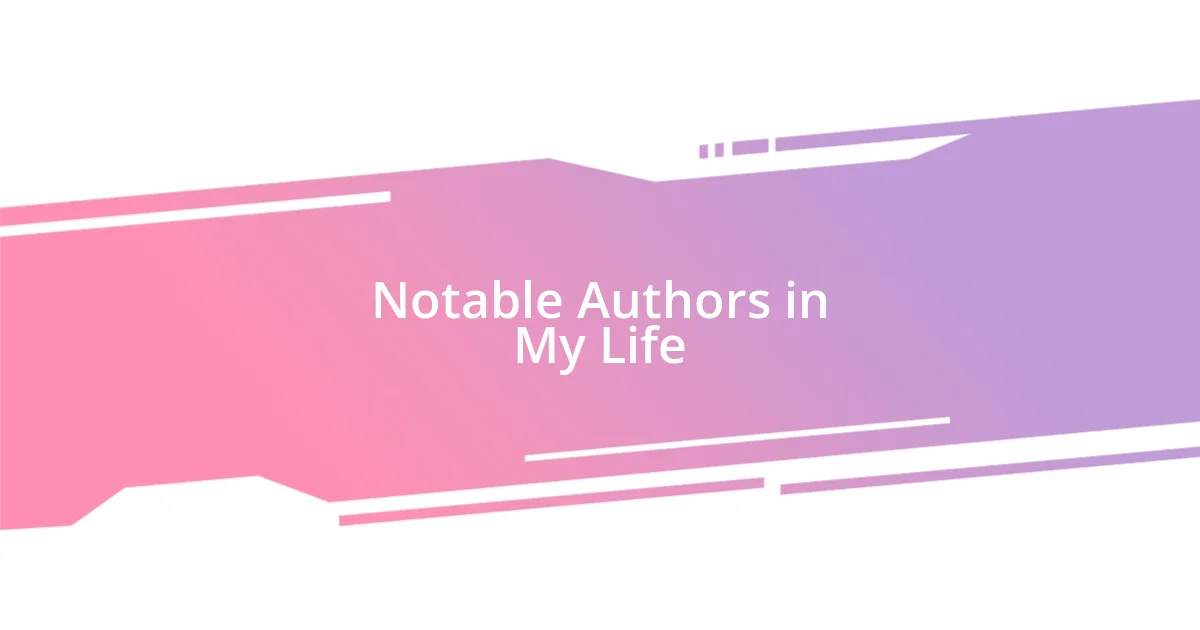
Notable Authors in My Life
In my journey through literature, a handful of authors have carved a lasting impression on my life. When I first read Gabriel García Márquez, his magical realism swept me away to worlds brimming with wonder. I vividly recall losing track of time as I immersed myself in the lush, vibrant scenes of One Hundred Years of Solitude, feeling as if I were part of the Buendía family’s intricate saga. There was a certain exhilaration in understanding that stories could blend fantasy with the deeply human experience.
Here are a few notable authors who have shaped my literary landscape:
- Virginia Woolf – Her stream-of-consciousness style and exploration of the inner self made me reconsider how we connect thoughts and emotions.
- Haruki Murakami – His blending of bizarre elements with poignant themes opened my mind to the surreal aspects of everyday life.
- Maya Angelou – Through her powerful autobiographies, I learned the importance of resilience and the beauty of language as a tool for empowerment.
- F. Scott Fitzgerald – His portrayal of the American Dream in The Great Gatsby made me question societal values, reflecting my own disillusionments.
These authors don’t just narrate stories; they resonate with my essence, shaping the way I perceive the world.
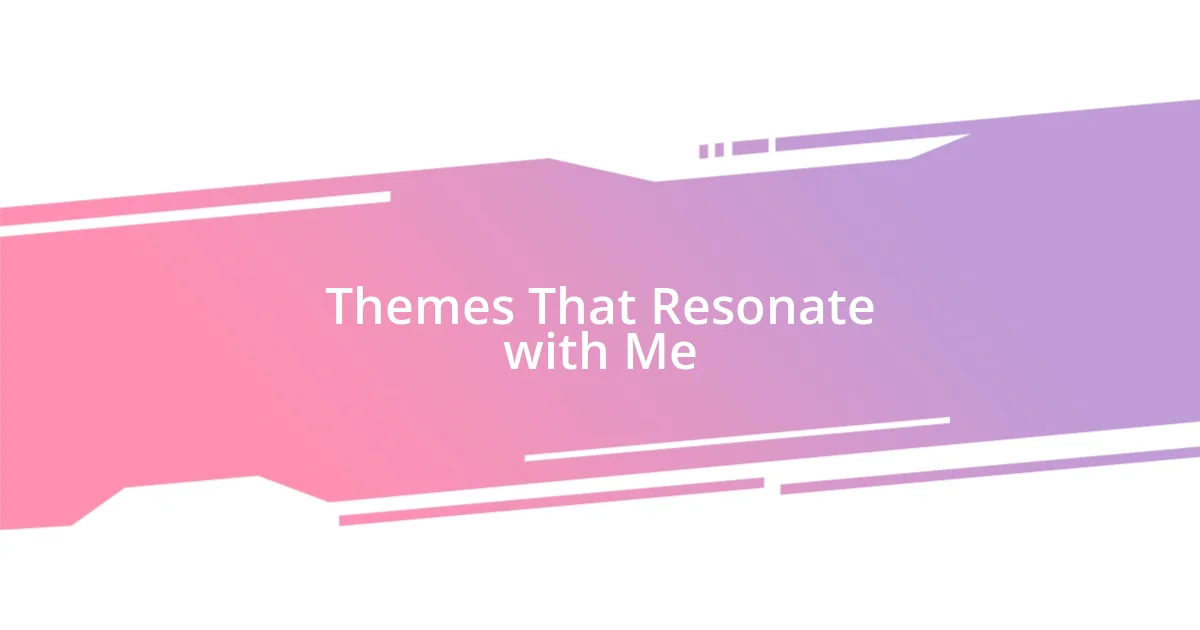
Themes That Resonate with Me
Exploring themes in literature often feels like a journey into my own psyche. The concept of love, particularly its complexities and contradictions, captivates me. I remember reading Pride and Prejudice and feeling the rush of Elizabeth Bennet’s determination against societal expectations. Her bold choices resonated deeply, reminding me to embrace my individuality, even when everyone around seemed to conform.
Another theme that resonates profoundly is resilience in the face of adversity. Maya Angelou’s stories echo the struggles and triumphs of overcoming personal battles. I recall feeling particularly connected to her experiences; they echoed my own challenges and reminded me that vulnerability can be a powerful source of strength. It’s enlightening how such narratives can transform our understanding of hardship.
Lastly, I find myself drawn to the theme of identity, exploring the multi-faceted nature of the self. Reading Chimamanda Ngozi Adichie’s Americanah was a revelation. Her exploration of race and belonging mirrored my own questions about my identity in a diverse society. How do we navigate the space between cultures? These literary themes not only reflect my experiences but also provide a framework for understanding my journey.
| Theme | Resonance |
|---|---|
| Love | Encourages individuality, depicted through complex relationships like in Pride and Prejudice |
| Resilience | Highlights personal battles and triumphs in narratives like Angelou’s |
| Identity | Explores self-discovery and cultural navigation seen in Americanah |
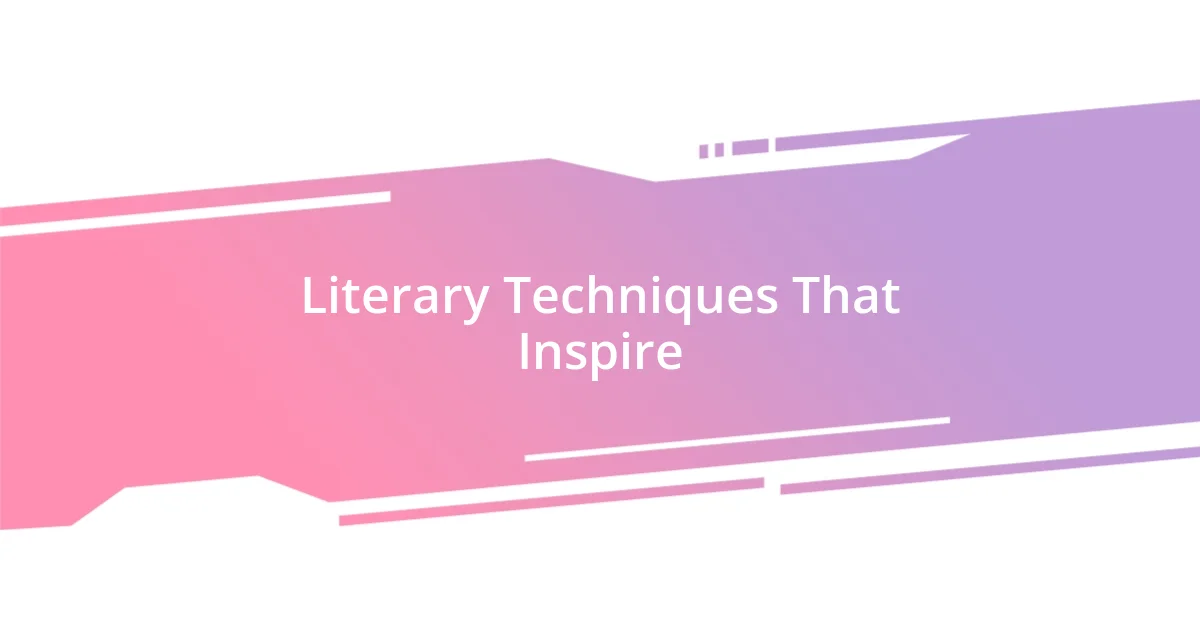
Literary Techniques That Inspire
Literary techniques breathe life into words, don’t you think? One technique that has always fascinated me is imagery. I recall a scene from a novel where the author described a sunset with such vivid detail that I could almost feel the warm glow against my skin. This kind of rich imagery creates an emotional resonance, allowing me to connect deeply with the narrative and the characters’ experiences. It’s as if I were stepping into their world, experiencing their joys and sorrows as my own.
Another technique that sparks my admiration is symbolism. When I read The Great Gatsby, I was particularly struck by the green light at the end of Daisy’s dock. This symbol encapsulates hope and unattainable dreams, mirroring my own aspirations. It got me pondering—how do we define our dreams, and what are the symbols in our lives that represent our deepest desires? It’s fascinating how symbolism can serve as a bridge between the reader’s reality and the characters’ struggles.
Lastly, I’m captivated by the use of foreshadowing. It’s like looking at the dark clouds on the horizon and anticipating a storm. I’ll never forget how a seemingly innocuous line in a story hinted at a character’s eventual downfall. This technique not only heightens suspense but also invites me to reflect on the choices we make. How often do we overlook the small signs leading us toward significant changes in life? For me, recognizing these subtle hints in a story encourages a deeper understanding of the characters—and in turn, a richer understanding of my own life choices.
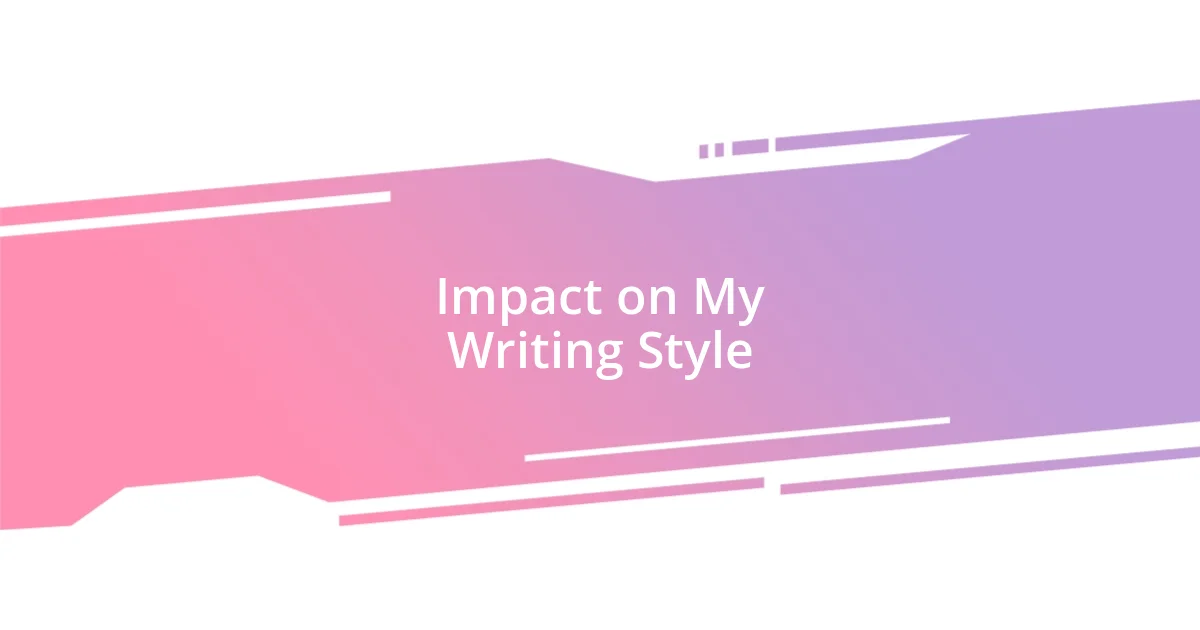
Impact on My Writing Style
Reflecting on my writing style, I’ve noticed how much my favorite authors influence my approach. For instance, the way Zadie Smith weaves different voices into her narratives inspires me to experiment with perspective. I recall trying this technique in my own work, and it felt like an exhilarating leap. Have you ever thought about how shifting a narrative voice can transform a story? That realization has empowered me to bring depth to my characters, ensuring that each one has a unique perspective to share.
The rhythm and flow in the prose of authors like Virginia Woolf have also left a significant mark on me. Woolf’s ability to create a stream-of-consciousness style makes the reader almost feel the emotions pressing through the words. I remember sitting in a café, deeply immersed in Mrs. Dalloway, and the words seemed to pull me into the characters’ inner worlds. This experience led me to incorporate shorter, punchier sentences in my writing at times, contrasting with longer, lyrical passages to evoke emotion and pace. Can you feel the difference in how it engages the reader? It’s something I strive to achieve.
Dialogue is another area where I’ve taken inspiration. Authors like Elmore Leonard craft dialogue that feels both authentic and engaging. I once attempted to mimic this in a short story, placing an informal banter between characters that sparked my own laughter. That moment made me realize how vital genuine dialogue is for character development. How often have you read a piece and felt connected through what the characters said? That connection can create memorable moments, and it’s a method I’ve come to deeply admire and integrate into my writing style.

Recommended Reading List
In my Recommended Reading List, I often spotlight books that have profoundly impacted my understanding of literary technique and style. For example, The Catcher in the Rye by J.D. Salinger captures the essence of teenage angst and identity crisis like no other. I remember reading Holden Caulfield’s candid observations and feeling a rush of nostalgia for my own youthful escapades. Have you ever come across a book that seemed to echo your life so perfectly?
Then there’s Beloved by Toni Morrison, which unfolds with haunting beauty and heartbreak. The raw emotion in Morrison’s prose moved me to tears during my first read. It really got me thinking about how powerful the language can be when writing about personal and collective trauma. I often recommend this book, not just for its story, but for the way it challenges readers to confront uncomfortable truths in a deeply moving way. Isn’t that what literature is meant to do—illuminate our shared humanity?
Finally, I can’t overlook To Kill a Mockingbird by Harper Lee. The themes of justice and moral growth strike such a chord with me. I vividly recall a discussion with friends about Atticus Finch’s unwavering integrity, and it sparked conversations about ethics in our own lives. How can we apply those lessons from literature to be better individuals? This book is a beautiful reminder of the potential for compassion and understanding in our daily actions. These selections are not just books; they’re gateways to perceiving the world through different lenses.
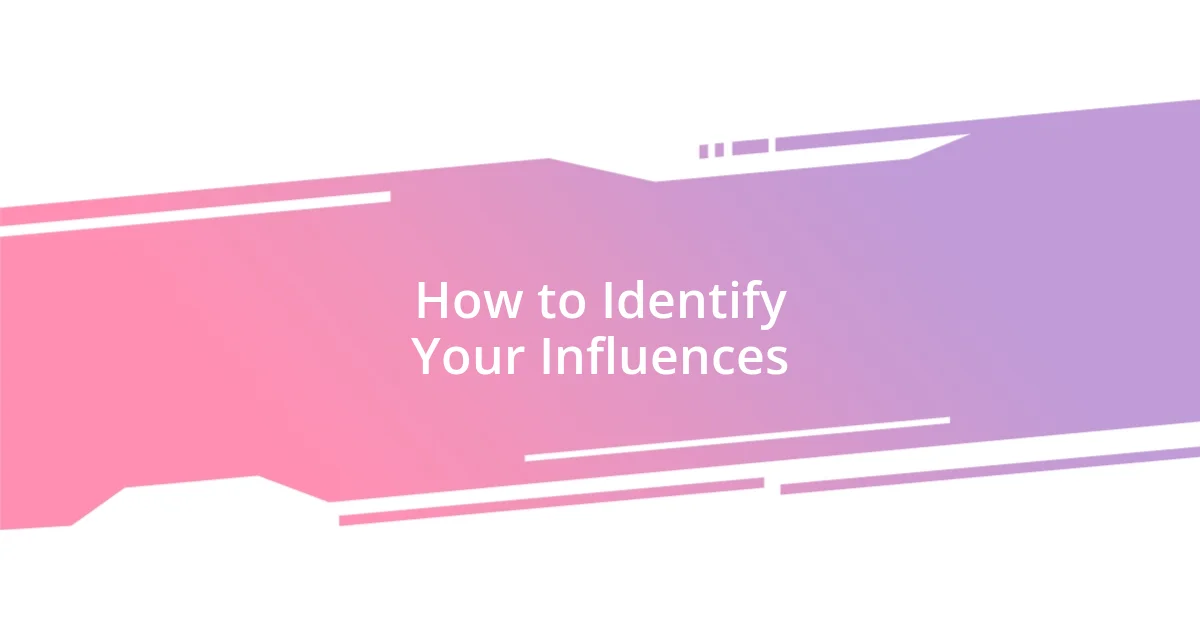
How to Identify Your Influences
Identifying your literary influences can be an enlightening journey. Start by reflecting on the books that resonated with you the most—do you remember the first time a story made you feel deeply or introduced you to new ideas? I can recall staying up late, turning pages of a novel that just spoke to my soul; those moments are often key indicators of who shapes your thinking as a writer.
Another method is to analyze your favorite passages. What themes or styles draw you in? I often find myself revisiting specific lines that stir something within me. For example, I was captivated by the metaphorical language in a poem I stumbled upon during a workshop. That experience made me realize how much I admire vivid imagery and how it impacts my own scribbling.
Lastly, consider your writing habits. Do you lean toward certain tones or structures? When I began to notice how much I enjoyed writing introspective monologues inspired by authors like James Baldwin, I recognized a significant shift in my voice. It’s powerful to acknowledge these tendencies; they reveal the authors who are weaving their magic into your narrative. What elements keep you engaged when you read? Identifying these details can shine a light on the influences that guide your creativity.

